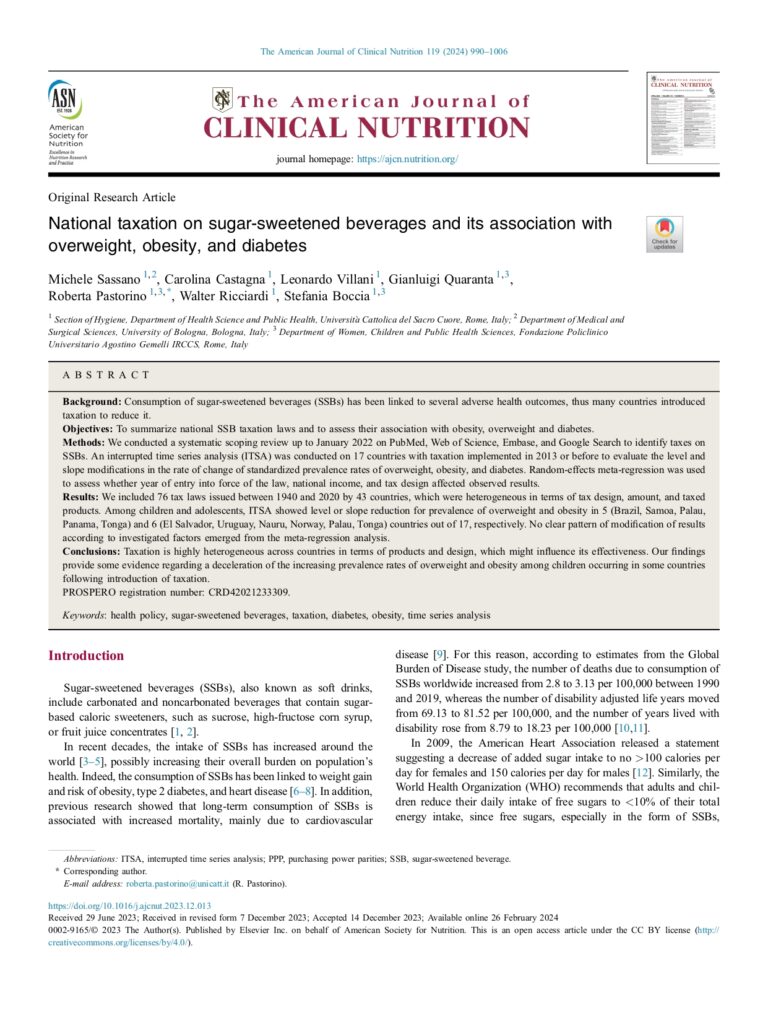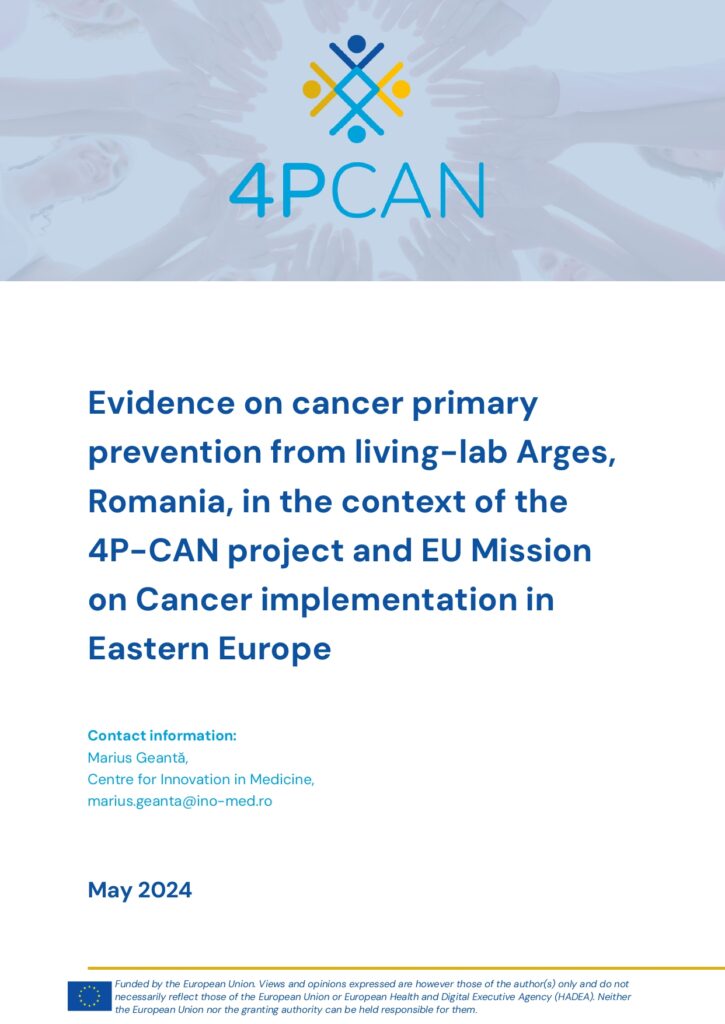D2.1 – Set of performance indicators

Cancer is a leading global cause of death, and primary prevention policies targeting modifiable risk factors are crucial for reducing its impact. This deliverable presents a scoping review of performance indicators used to monitor, propose, or evaluate cancer prevention policies at international and national levels across consortium partner countries. Indicators were categorized into six risk […]
D3.1 – Direct cost analysis

This report provides an in-depth analysis of the direct costs of cancer, focusing on national government expenditures on cancer-related programs and patient care. It examines healthcare spending on interventions, including personnel, facilities, and medications, using a systematic literature review and a data dictionary to compile relevant datasets. The report introduces the Cancer Risk Factors Index […]
National taxation on sugar-sweetened beverages and its association with overweight, obesity, and diabetes

The article presents a systematic scoping review following the Preferred Reporting Items for Systematic reviews and Meta-Analyses extension for Scoping Reviews to summarize the landscape of national tax laws on sugar-sweetened beverage (SSB) – soft drinks, include carbonated and noncarbonated beverages that contain sugar-based caloric sweeteners, such as sucrose, high-fructose corn syrup, or fruit juice concentrates – consumption and its associated health risks, encompassing weight gain, obesity, type 2 diabetes, and cardiovascular disease. Its primary aim is to provide a methodical overview of national tax regulations on SSBs and to assess their influence on the prevalence of overweight, obesity, and type 2 diabetes.
Evidence on cancer primary prevention from the living lab in Arges, Romania, in the context of the 4P-CAN project and EU Mission on Cancer implementation in Eastern Europe.

The living lab in Arges exemplifies the potential for innovative, holistic approaches to cancer prevention, emphasizing the need for prioritizing the EU Mission on Cancer and fostering collaborative, adaptable strategies across Europe.
Groundbreaking Partnership for Cancer Prevention Innovation: the 4P-CAN Research and Innovation Project Promoted by ACS Zimbrii Lerești Football Team

The 4P-CAN project logo will appear on the jerseys of ACS Zimbrii Lerești players starting with the second half of the 2023-2024 season. It is the first European research project to be promoted by a football team.
PIECES
The PIECES project aims to adapt and implement existing evidence-based programmes to improve implementation outcomes and by that, improve the reach and effectiveness of primary prevention programmes in real-world settings. It will address a wide range of risk factors and focus on the specific behaviour change mechanisms that promote healthy behaviours associated with a reduction of cancer incidence among the European Union (EU) population and beyond.
4P-CAN

4P-CAN’s mission is to understand barriers, whether legislative, socio-economic, commercial, or behavioural to the widespread adoption of cancer primary prevention measures across Central and Eastern Europe. By understanding barriers to policy implementation and individual adherence to healthy behaviours, 4P-CAN will improve primary prevention activities and reduce inequalities. With the collaboration of 17 organizations from 11 countries, including both EU and non-EU Balkan countries, as well as Western EU countries, 4P-CAN is dedicated to achieving these goals and fostering a healthier future.
PREVENT
PREVENT is a collaborative action to improve and upscale primary prevention of cancer by addressing childhood obesity. Through diligent implementation research and a comprehensive approach, this project aims to lay the foundation for a future where healthier lifestyles and brighter tomorrows await every child. The PREVENT project mission is rooted in epidemiological studies that have highlighted a clear link between obesity and increased risks of various types of cancer, including colon, endometrium, postmenopausal breast, and kidney cancer, among others.
ONCODIR

The research project ONCODIR will identify risk factors associated with colorectal cancer and will integrate multidisciplinary research methods and technologies (including health policy analytics, artificial intelligence and decision support theories) to deliver evidence-based and personalized recommendations on colorectal cancer prevention. ONCODIR is developing a platform based on artificial intelligence and privacy principles. It will provide recommendation services based on input from citizens, clinicians and policy-makers. The project will consider factors such as lifestyle, nutrition and economics.
Cancer Prevention at Work

The Cancer Prevention at Work (CPW) project researches the cost-effectiveness and social acceptance of incorporating prevention of cancers associated with Helicobacter pylori, Hepatitis C virus and Human Papillomavirus into ongoing primary occupational health surveillance programmes. The project involves workers and their families, policymakers, occupational health organizations, health authorities, companies and workers’ representatives, and cancer and patient organisations, among others, to identify the best strategies to increase the adherence of the population of workers in screening programs of infection-related cancers.

